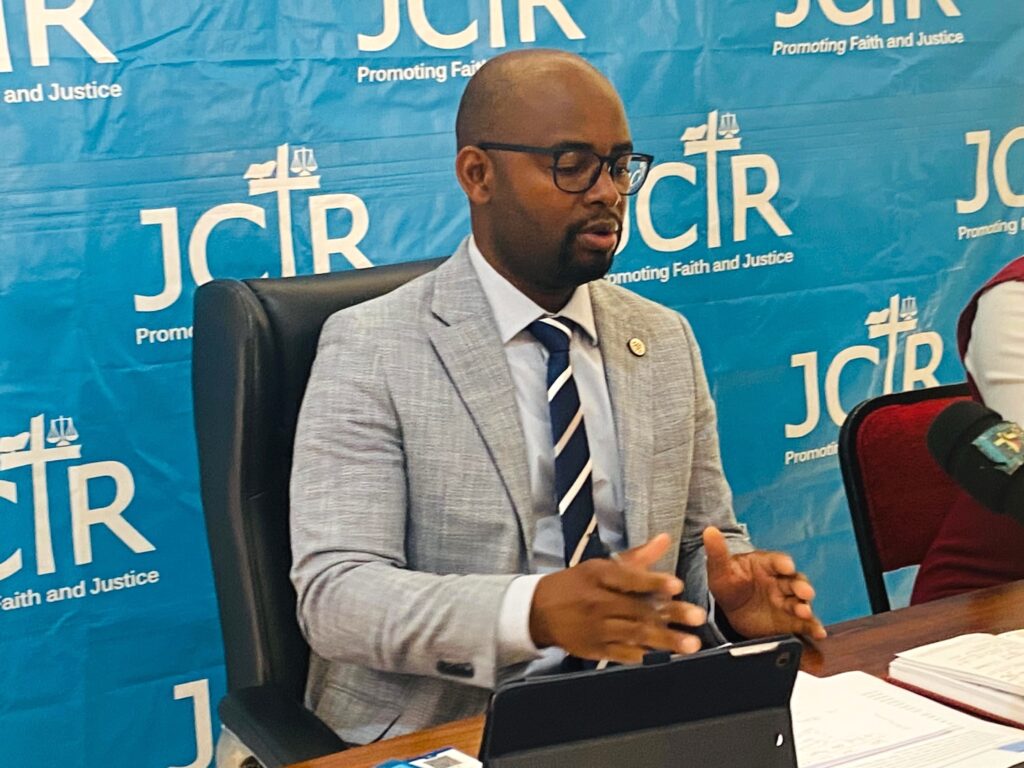ZAMBIA: Rising Cost of Living Continues to Burden Zambia’s Poor, JCTR Warns

JCTR Executive Director briefing the press on the cost of living.
Sandra Kunda
Zambia’s poor and marginalized communities continue to struggle with the high cost of living as the latest Basic Needs and Nutrition Basket (BNNB) findings from the Jesuit Centre for Theological Reflection (JCTR) reveal a sustained increase in household expenses.
The report, viewed alongside stagnant national average earnings, raises serious concerns about the ability of low-income households to afford basic necessities and live a dignified life.
Speaking during a press briefing, JCTR Executive Director Fr. Dr. Daniel Mutale S.J., warned that as incomes remain stagnant, the gap between the cost of living and what households can afford also continues to widen, worsening economic inequalities.
He disclosed that the cost of living continues to rise across the country, noting that Lusaka recorded the highest average cost of living in the first quarter of 2025 at K1,315.52, while Chinsali had the lowest at ZMW K5,991.40. The report also highlighted significant increases in the cost of living in Ndola, Kabwe, Livingstone, and Mongu over the past three months.
Fr. Mutale attributed the rising costs to seasonal factors such as heavy rains, which disrupted the supply of key commodities.
He cited charcoal prices in Lusaka, which surged from K497 to K562.50 per 90kg bag, as an example of how extreme weather conditions continue to impact essential goods.
Despite a slight month-on-month decline of ZMW 52.25 from February 2025, Fr. Mutale emphasized that essential goods and services remain unaffordable for many families. He warned that with stagnant incomes, the gap between the cost of living and household affordability continues to widen, deepening economic inequalities.
In response to the findings, JCTR is urging the government to prioritize measures that will ease the financial burden on households, including investment in agricultural infrastructure and technologies to improve market access for farmers, preservation of harvest gains through better storage facilities to prevent post-harvest losses, and increased investment in social sectors such as health, education, water, sanitation, and social protection to support struggling families.
JCTR’s findings highlight the urgent need for policies that address the root causes of high living expenses and ensure that economic growth translates into meaningful improvements in people’s lives.


